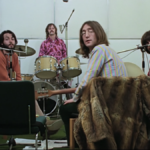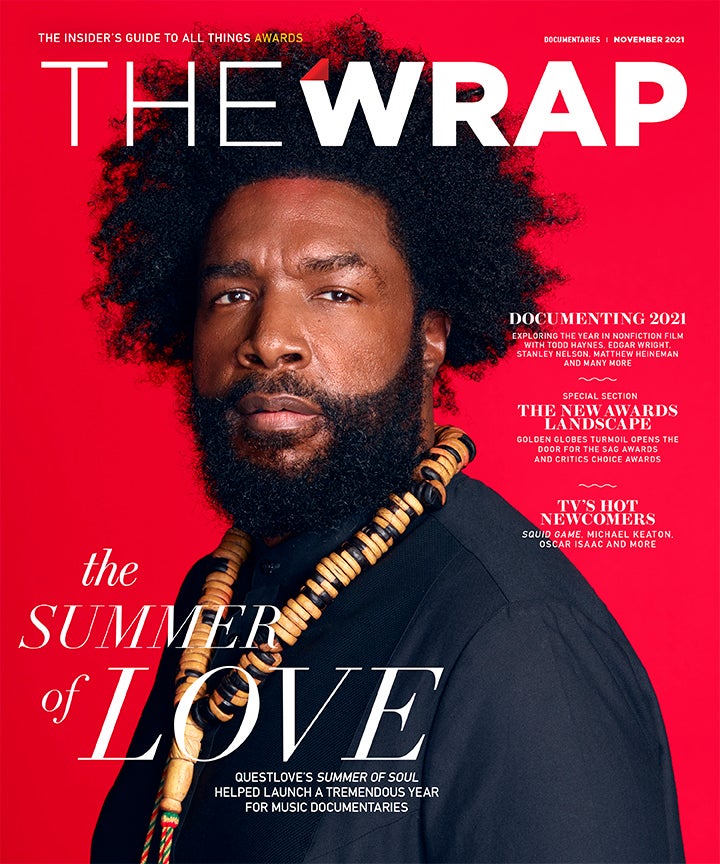TheWrap magazine: “At one of the more disturbing locations, the workers appeared the most relaxed,” documentary filmmaker Jessica Kingdon says
A version of this story about “Ascension” first appeared in the Documentaries issue of TheWrap magazine.
“China is a Rorschach test,” director Jessica Kingdon said of her buzzy new documentary “Ascension,” an impressionistic tone poem about the world’s most populous nation.
The film tells the story of China’s economic ladder – not with data and statistics, but with stunning visuals and eye-opening anecdotes, including an ironic, serene visit to a sex doll factory.
TheWrap sat down with Kingdon to discuss her approach to the material.
How did the structure of “Ascension” take shape?
Originally, my idea was to have title cards separating the sections of the films. First I had three sections, regarding the cycle of production, consumption and waste. But as we were shooting, the film became more about the rise of a new consumer class in China. Then it was going to be in five chapters, each separated by a title card. Eventually I came to think of the title cards as scaffolding on the documentary, so I removed them. Now the film is better able to wash over you from one section to the next. You’re better able to feel the interconnectedness.
And it’s also a very full, satisfying movie experience, even with a running time of 97 minutes.
I think so too. At one point I was saying that it needs to be three hours. I’m sure every director has a moment like that during the editing process. My producers immediately shut me down, which was the right thing to do.
How did you land on “Ascension” as the title?
We went through a whole bunch of iterations of what to call the movie. “Ascension” came near the end of production, when we had shot all the footage. We actually did get some pushback because not everyone thought it fit at first. But it does mirror the structure of the film, which is about understanding the class ladder.
And then I found this poem written by my great-grandfather, who I had never met. He was a famous poet in Hunan, China. It was written over a hundred years ago. The narrator climbs to the top of a high structure and from that vantage point is able to look down and see chaos and destruction and feels angst over that. And right when I first read it, I thought oh that kind of mirrors the theme of this documentary. It’s about the paradox of progress. So we bookended the movie from passages from the poem.
Are you a fan of the director Godfrey Reggio, who made “Koyaanisqatsi” in the 1980s? Like your film, it’s a shower of images and sound?
He’s definitely one of my influences. I wasn’t thinking exactly about “Koyaanisqatsi” while I was making this, but I’m a big fan of it. I was thinking about formalist films that prioritize social issues and aesthetics, like ones by Michael Glawogger, who made “Workingman’s Death” (2005) and “Whores’ Glory” (2011). Nikolaus Geyrhalter, who made “Our Daily Bread” (2005). And classic observational filmmakers like the incredible Frederick Wiseman.
There are many scenes set in factories. How easy was it to gain access to them?
The crypto currency mine was difficult. Also, one of our field producers had to convince a factory administrator that we weren’t going to charge him after we filmed there. But some of the most striking locations were the easiest to get into. I think it’s because we were clear about our intentions: We were making a documentary about China’s economic rise. So it was very easy to film at the bodyguard school, where we see people in training to protect wealthy clients, and at the sex doll factory.
The sex doll factory is where we see workers custom build lifelike silicone women for male clients. So many bigger themes emerge from that sequence.
In editing the film, it made sense that that location was the finale of everything else we saw in the factory segment. It’s this absurd, heightened example of exploitation. And for whatever reason, the women working there were so talkative and loose and lots of jokes floating around. While it seems to be one of the more disturbing locations, the workers appeared the most relaxed. There’s a lot of irony there.
There is also a scene where we can see a Trump re-election slogan being sewn into a shirt, though it’s upside-down and backwards when we see it.
It’s actually a scarf. And that was the first time we saw that slogan, “Keep America Great.” That’s how we learned about it. Because China is the heart of product manufacturing, they often get news about marketing trends before we do in the United States. What I like is this factory was manufacturing all kinds of custom textiles, so similar to the sex doll factory, even though these products are politically or emotionally charged, it has the same treatment as everything else. It’s just making a product. We see the “Keep America Great” logo on a scarf and then we see some embroidering for a high school reunion. Then we see unicorns and whatever else is next on the line.
Was there other politically charged products being manufactured that you didn’t include in the film?
We wanted to film MAGA hats being made but they had run out of them. Actually, an order from Canada had come in and bought up all of their MAGA hats. Which was a little baffling, just the “from Canada” part. And we really thought that Trump was going to win in 2020, because there’s a feeling in that part of China, known as “Commodity City,” that the businessmen know who the next political leaders will be. Because they are manufacturing all of the political merchandise. All of them were saying it’s definitely going to be Trump in 2020. It’s because his base is more consumer heavy.
What kind of audience reaction has the film evoked in the months since it premiered?
I’ve been pretty stunned. The film is made with a real experimental spirit, and I’m thrilled that it has spoken to people. I’m really glad that people are reflecting on their own values and understanding of their own cultures. The film isn’t strictly an indictment of China’s systems. It’s asking larger questions.
Read more of the Documentary Issue here.
Connect
- YouTube
- © The Wrap News Inc. 2021
- BE | Home
- DAY 1 | ON-DEMAND
- DAY 2 | ON-DEMAND
- DAY 3 Upgrade | ON-DEMAND
- Schedule
- Speakers/Mentors
- TheWrap
Featured Blogs
- WaxWord
- Steve Pond
- Tony Maglio
- Alonso Duralde
- BE Conference Blog
- TheGrill Conference
Information
- Masthead
- About Us
- Newsletter Subscription
- CollegeWrap Magazines
- OscarWrap Magazines
- EmmyWrap Magazines
- CannesWrap Magazines
- Jobs
- Contact
- Advertise With Us
- Privacy Policy
- Popular Article Tags
- Press Releases
- Contact
- Advertise With Us
- Jobs
- Privacy Policy
Source: Read Full Article












